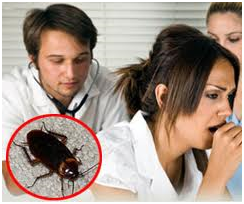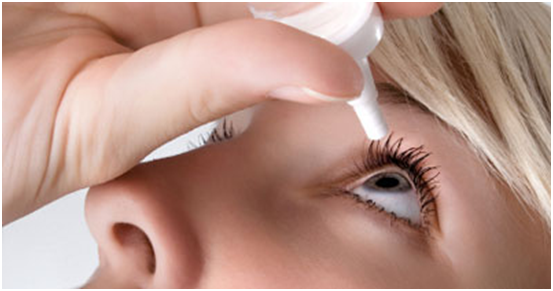Cockroach



How do Cockroaches cause Allergy symptoms?
Cockroaches live in all types of buildings and all kinds of neighbourhoods. Some people develop allergy symptoms when they are around cockroaches. Luckily, there are ways to treat a cockroach allergy and prevent and get rid of cockroaches.
Cockroach allergens are widely distributed throughout homes, schools and other public places. Simple precautions can protect individuals who are particularly sensitive to cockroach allergens.
The allergens produced by cockroaches are likely concentrated in their faecal matter and in fragments of their body parts. These tiny particles can become airborne and contaminate the air in your home. Cockroach allergens behave like dust mite allergens. These allergens do not remain airborne for long. Activities like dusting and dry mopping may stir up allergens that have settled in dust or fabrics. The most common way to inhale cockroach allergen is to breathe in dust or allergens that have collected in pillows, bedding or other dust-trapping fabrics.
Cockroach allergen not only can aggravate asthma and allergic rhinitis but there are evidence from various researches that exposure to cockroach allergen early in life can actually cause development of asthma in preschool children.
It can induce coughing and wheezing in children <12 months of age.
What are the Symptoms of a Cockroach Allergy?
The symptoms include a stuffy nose that won’t go away and skin rash, and year-around asthma symptoms such as coughing, wheezing (a whistling sound when a person breathes), a feeling of tightness in the chest, and shortness of breath.
Where do Cockroaches usually live?
Cockroaches usually live where there is something they like to eat, in moist areas, and in warm hiding places.
Things they like to eat. Food and paints, wallpaper pastes, newspapers, and book binding material.
Moist areas. Any moist area including standing water and “sweating pipes.”
Warm hiding places. Under the sink and in wall and floor cracks, stacks of newspaper or books, and grocery bags.
Did you know…If you see one cockroach in your home, there are probably at least 800 hiding nearby
Cockroaches don’t need to be present for there to be cockroach allergen in your home. One in five homes with no history of cockroach infestation has a significant level of allergen in dust and fabrics
How can I prevent or get rid of Cockroaches in my home?
Keep food and garbage in containers with tight lids. Never leave food out in the kitchen or anywhere else.
Clean up all food crumbs and spilled drinks right away.
Store food in tight containers or storage jars.
Wash dirty dishes right away.
Don’t leave out pet food, except when your pet is eating.
Keep counters, sinks, stove, tables, and floors clean and clear of clutter.
Vacuum or sweep the kitchen floor after meals. Mop the floor at least once a week.
Fix leaky faucets, drain pipes, and other moisture problems.
Get rid of piles of things, like cardboard boxes and newspapers, where cockroaches may hide.
Plug up small spaces around the house, such as cracks between the wall and floor, where cockroaches can enter.
Use poison baits, boric acid, or traps.The spray can make asthma and allergies worse.
Be aware that cockroaches move from place to place to avoid treated areas. When the pesticide spray wears off, they’ll probably come back.




